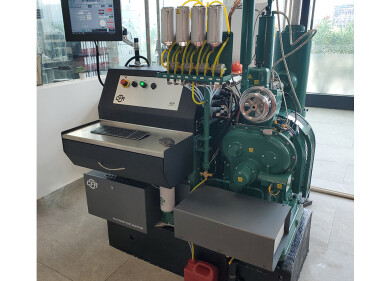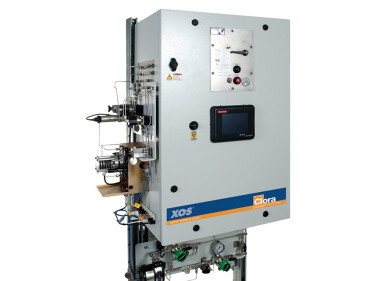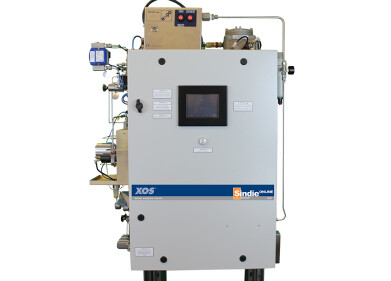Analytical instrumentation
Combustion Mercury Analyser with Unique Configurable Capabilities
Sep 19 2017
For more than 10 years Teledyne Leeman Labs has manufactured and supported a direct combustion mercury analyser, the Hydra IIc. By quantifying environmental mercury contamination, the dangers of human and/or industrial exposure can be adequately assessed. The Hydra IIc, due to its modular design, has some unique capabilities such as measuring mercury isotopes. The systems modular design allows for configuration with an ICP-MS system for a streamlined approach to mercury isotope determination in virtually any sample. Our team of chemists and engineers has more recently enhanced the base system for an automated approach for the analysis of petroleum distillates. The Hydra IIC mercury analyser is now capable of analysis in the standard combustion mode (CAA) and the volatile hydrocarbon combustion mode (CAAVHC). The CAAVHC mode enables the Hydra IIC to determine the mercury concentration in light to heavy petroleum distillates, various refined oils, raw petroleum products and other highly volatile samples. The detection and concertation determination of mercury in petroleum distillates, crude oil and other naturally occurring hydrocarbons is of the utmost importance due to environmental and distillation technological issues refineries face head on each and every day. The Hydra IIC injects petroleum distillates up to a maximum weight of 80 mg at or below the default maximum injection temperature of 50 ºC. This default temperature is a typical injection temperature to avoid auto-ignition during the sample injection step thereby securing the integrity of the sample for accurate/precise determination of mercury. The system easily achieves method detection limits of < 0.5 ng/g in samples such as Kerosene and other light to heavy petroleum distillates.
The Hydra IIC, Cold Vapor Atomic Absorbance (CVAA) Combustion Mercury Analyser is truly a stand-alone analyser that can do it all. The system is based on CVAA spectrometry and can obtain reliable quantitative data from simple to complex matrices by direct combustion in combination with a proprietary catalyst to remove interfering compounds (such as sulfur and nitrogen oxides). To assist in water removal from the sample gas steam, the combustion process passes the elemental mercury through a heated PermaPure® drying system with counter flow. The sample flow path continues with the concentration of Hg0 onto gold coated quartz sand which is then heated to temperatures greater than 600°C to liberate the elemental mercury. The liberated elemental mercury is finally swept by the combustion carrier gas to the analytical absorbance cells where it is measured at 253.7 nm for determination of the sample’s mercury concentration.
The working range for the Hydra IIC Mercury Analyser is <0.05 ng to >1000 ng. Samples typically analysed on the Hydra IIC would include but are not limited too such samples as soils, sediments, coal, coal fly ash, fish, plants and water. Most samples analysed on this system are without sample pretreatment, saving time, money and eliminating preparation errors. The systems software will allow the analysis parameters for each and every sample to be customize for each sample within the analytical run. The calibration is mass based so a one size fits all approach for the calibration is possible. The system has two detection modes, one for low mass and one for high mass samples. The system will automatically compare the sample mass of the unknown in a best fit calibration for reporting the concentration of the Mercury in ng/g (ppb).
The Hydra IIC is uniquely suited for direct combustion and subsequent detection of mercury as expressed in promulgated and published methods such a US EPA method 7473 and ASTM methods 6722 and 7623.
For more information please click here.
Digital Edition
PIN 25.6 Buyers' Guide
January 2025
Buyers' Guide Directory - Product Listings by Category - Suppliers Listings (A-Z) Articles Analytical Instrumentation - ASTM D7042: The Quantum Leap in Viscosity Testing Technology -...
View all digital editions
Events
SPE Hydraulic Fracturing Technology Conference and Exhibition
Feb 04 2025 The Woodlands, TX, USA
Feb 05 2025 Guangzhou, China
Trinidad and Tobago Energy Conference 2025
Feb 10 2025 Point Lisas, Trinidad
Feb 11 2025 Lagos, Nigeria
Feb 13 2025 Manama, Bahrain





















